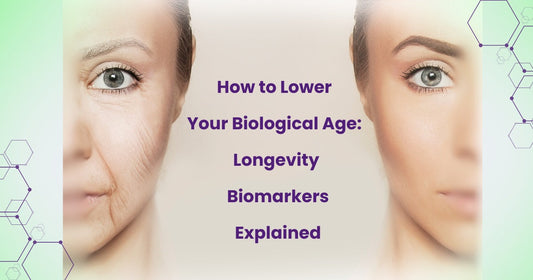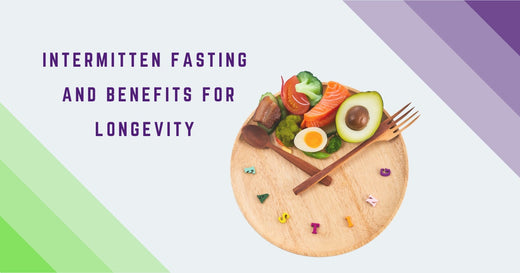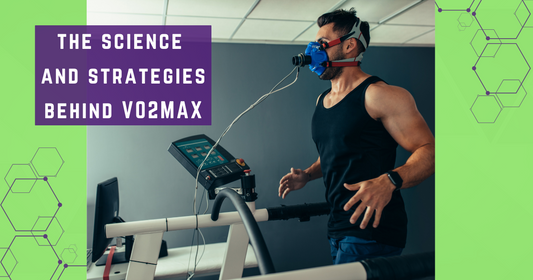High-Intensity Interval Training (HIIT) is more than just a workout trend; it’s a powerful tool for enhancing longevity. This form of exercise alternates short bursts of intense activity with periods of rest or lower-intensity exercise, making it highly effective in a short amount of time.
But how exactly does HIIT contribute to a longer, healthier life? Research shows that HIIT improves cellular health, strengthens muscles, enhances cardiovascular function, and positively impacts mental health—all key factors in promoting longevity.
In this article, we’ll explore the science-backed benefits of HIIT and how incorporating it into your routine can help you live a longer, healthier life.
How HIIT Enhances Cellular Function and Longevity
At the cellular level, HIIT has profound effects. This type of training triggers the production of new mitochondria, the energy-producing powerhouses in our cells. More mitochondria mean better energy production, which is crucial for maintaining the health and function of our organs and tissues as we age.
HIIT also promotes autophagy, a process where the body cleans out damaged cells and regenerates newer, healthier ones. This is vital for longevity, as it helps to prevent the accumulation of cellular damage that contributes to aging and disease.
Moreover, HIIT has been shown to increase telomere length. Telomeres are protective caps at the ends of our chromosomes, and their length is a marker of biological aging. Studies suggest that longer telomeres are associated with longer lifespans, and HIIT can play a significant role in maintaining their length.
HIIT as a Part of Hormesis: Enhancing Longevity
HIIT is a prime example of hormesis, a biological phenomenon where a beneficial effect results from exposure to low doses of stressors. In the case of HIIT, the intense physical exertion serves as a mild stressor that stimulates the body’s adaptive responses.
Hormesis plays a crucial role in longevity by improving the body’s resilience to various forms of stress, including oxidative stress and inflammation. When you engage in HIIT, your body responds by enhancing its antioxidant defenses, repairing damaged cells, and strengthening the cardiovascular and muscular systems.
This hormetic effect is one of the reasons why HIIT is so effective at promoting longevity. By challenging your body in controlled, intense bursts, you activate the mechanisms that protect against aging and disease, ultimately contributing to a longer, healthier life.
The Muscle-Strengthening Benefits of HIIT
Maintaining muscle mass and strength is essential for aging well. HIIT is highly effective at preserving and even building muscle, thanks to its combination of resistance and aerobic exercises. As we age, muscle loss is a common concern, leading to decreased mobility and independence.
HIIT helps to counteract this by stimulating muscle protein synthesis, the process that repairs and builds muscle tissue. The intense bursts of exercise during HIIT sessions force muscles to adapt, leading to increased strength and endurance.
Additionally, HIIT can improve muscle insulin sensitivity, which declines with age. Better insulin sensitivity means that muscles can absorb glucose more effectively, reducing the risk of type 2 diabetes—a condition that becomes more common with aging.
HIIT and Cardiovascular Health: A Key to a Longer Life
Cardiovascular health is a major determinant of longevity, and HIIT has been shown to have significant benefits for the heart. During the high-intensity phases of HIIT, the heart rate elevates to near maximum levels, improving cardiovascular efficiency.
Regular HIIT workouts can lower blood pressure, improve cholesterol levels, and reduce the risk of heart disease. One study found that just a few weeks of HIIT could improve cardiovascular fitness as effectively as traditional, longer-duration aerobic exercise.
Moreover, HIIT helps reduce resting heart rate, which is a crucial indicator of cardiovascular health. A lower resting heart rate means that the heart is working more efficiently, pumping more blood with fewer beats. This reduced strain on the heart contributes to a longer lifespan and a lower risk of heart-related illnesses.
Scientific Studies Supporting HIIT for Longevity
Scientific research supports the idea that HIIT can significantly contribute to longevity. A study published in the journal Cell Metabolism found that HIIT not only improved insulin sensitivity and cardiovascular health but also reversed age-related decline in muscle mitochondria.
Another study in Circulation demonstrated that HIIT improved heart function and reduced the risk of heart disease in older adults. Participants who engaged in HIIT showed significant improvements in their heart's ability to pump blood, a key factor in reducing mortality.
Furthermore, research from the European Heart Journal revealed that HIIT could be more effective than moderate-intensity continuous training (MICT) in improving aerobic capacity, which is closely linked to longevity.
How HIIT Reduces Inflammation and Aging Markers
Chronic inflammation is a major driver of aging and age-related diseases. HIIT has been shown to reduce levels of inflammatory markers in the body, contributing to a healthier, longer life. The intense bursts of exercise in HIIT stimulate the release of anti-inflammatory cytokines, proteins that play a crucial role in reducing inflammation.
Additionally, HIIT can lower oxidative stress, another contributor to aging. By enhancing the body’s antioxidant defenses, HIIT helps to neutralize free radicals, reducing the damage they cause to cells and tissues.
These anti-inflammatory and antioxidant effects of HIIT are essential for slowing down the aging process and protecting against age-related diseases.
HIIT’s Role in Improving Insulin Sensitivity
Insulin sensitivity refers to how effectively the body’s cells respond to insulin, a hormone that regulates blood sugar levels. Poor insulin sensitivity, or insulin resistance, is a hallmark of aging and a precursor to type 2 diabetes.
HIIT has been shown to significantly improve insulin sensitivity, making it easier for the body to manage blood sugar levels. This is particularly important as we age, as the risk of developing insulin resistance increases.
Improving insulin sensitivity through HIIT can reduce the risk of diabetes and other metabolic disorders, contributing to a longer, healthier life.
Mental Health Benefits of HIIT Contributing to Longevity
The benefits of HIIT extend beyond the physical, also positively impacting mental health. Regular HIIT workouts have been shown to reduce symptoms of anxiety and depression, both of which can negatively affect longevity.
HIIT stimulates the release of endorphins, the body’s natural mood elevators, leading to improved mental well-being. Additionally, the sense of accomplishment that comes from completing a challenging HIIT session can boost self-esteem and confidence.
Moreover, HIIT helps reduce stress by lowering levels of cortisol, the body’s primary stress hormone. By keeping cortisol in check, HIIT can help prevent the negative health effects associated with chronic stress, such as high blood pressure, weakened immune function, and impaired mental clarity.
Mental health is closely tied to physical health, and by improving both, HIIT can contribute to a longer, more fulfilling life.
Incorporating HIIT Into Your Routine for Long-Term Benefits
To reap the longevity benefits of HIIT, consistency is key. Start by incorporating HIIT sessions into your weekly routine, aiming for at least two to three sessions per week. These workouts can be as short as 20-30 minutes, making them easy to fit into a busy schedule.
For beginners, it’s important to start slowly and gradually increase the intensity and duration of your workouts. Listen to your body and give yourself time to recover between sessions.
Remember, the goal of HIIT is to challenge yourself, but it’s also important to enjoy the process. Over time, you’ll notice improvements in your strength, endurance, and overall well-being, all of which contribute to a longer, healthier life.




